Sur-Place Fellows Winter Term 2024-2025
Ekaterina Bataeva
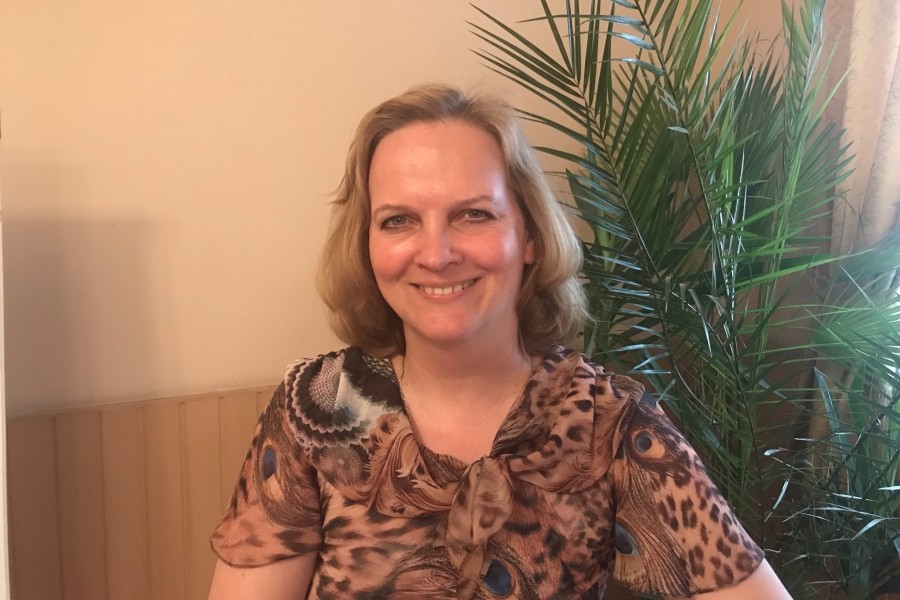
Ekaterina Bataeva
Ekaterina Bataeva is a professor of the Department of Social Rehabilitation Technologies, Zhytomyr Institute of Economics and Humanities – Open International University of Human Development ‘Ukraine’ in Kyiv. She studied sociology at the V. N. Karazin Kharkiv National University, held a PhD and a habilitation in philosophical science in V.N. Karazin Kharkiv National University. She has been working in the positions of Assistant Professor, Professor in the sociology and humanities departments at the V. N. Karazin Kharkiv National University (1996-1998), Kharkiv National University of Internal Affairs (1998-2008), Kharkiv University of Humanities ‘People’s Ukrainian Academy’ (2008-2022). She is a member of the Ukrainian Sociological Association.
KIU-Research project "Higher education in a frontline city: institutional, organizational and personal peculiarities of educating during the Russian-Ukrainian war" explores the basic features of higher education in a Ukrainian frontline city during the Russian-Ukrainian war. It also focuses on development of the concepts of frontline, frontscape, and frontline city in the context of contemporary border studies. It is based on in-depth interviews with experts on higher education in Ukraine and statistical analysis.
Research interests:
- Higher Education Practices
- Social Visualistics
- Military Identity of Veterans
- History of Ukrainian Sociology
Lesia Bidochko
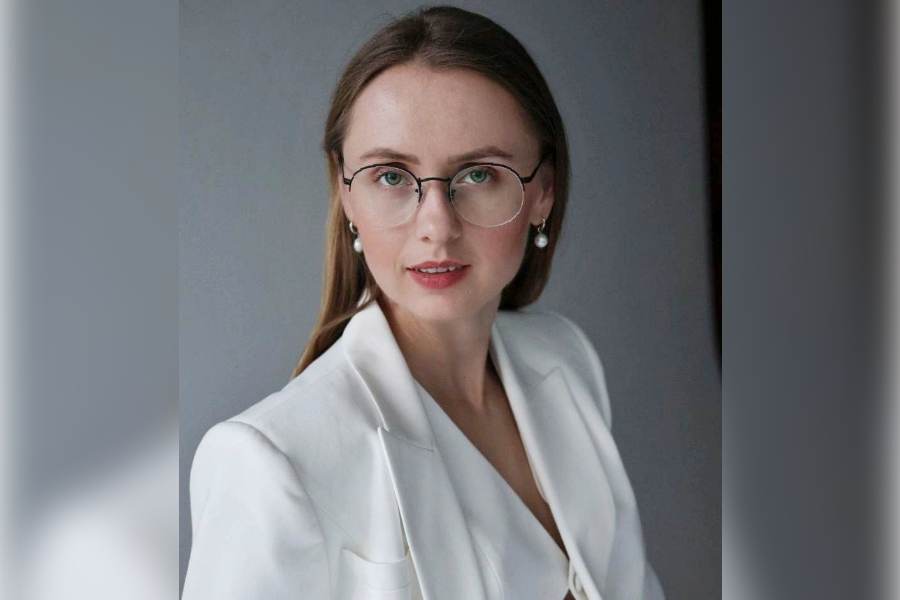
Lesia Bidochko
Lesia Bidochko is a Senior Lecturer at the National University of Kyiv-Mohyla Academy and the Deputy Head of the Research Center at Detector Media. She holds a Ph.D. in Political Science (2019) from Kyiv-Mohyla Academy, where her dissertation, Cultural Materialism as a Methodology for Political Research: The Case of Ukrainian Left Parties, explored the intersection of anthropological theory and political ideology. From 2023 to 2024, Lesia was a GCE St. Gallen Fellow at New Europe College in Bucharest, where she conducted in-depth research on the political activities and ideological markers of Ukrainian far-right movements prior to 2022. During 2024–2025, she also worked as an External Subject Matter Expert for the Counter Extremism Project in Germany, contributing her expertise on extremism and disinformation to international efforts to combat radicalization. With her experience in academia and media, Lesia specializes in the study of far-right movements in Ukraine and the mechanisms of Russian propaganda, particularly the dissemination of Kremlin-backed narratives within Ukrainian social media spaces.
KIU-Research project "The Ukrainian Far-Right in the Armed Forces Post-2022: Key Trends in Their Rhetoric" examines the evolving public discourse of far-right groups integrated into Ukraine’s official military structures following the full-scale Russian invasion in 2022. The project analyzes the dynamics of their rhetoric in public statements and social media content, investigating whether these groups retain their far-right ideological markers or if military discipline and the exigencies of war have prompted a transformation of their political identities. This study offers critical insights into the intersection of ideology, militarization, and national defense in the context of Ukraine’s ongoing war.
Lesia’s primary research interests include:
- Russian hybrid warfare and FIMI,
- the Ukrainian media landscape,
- REMVE threats,
- Ukraine’s strategic communications in occupied territories.
Denys Chyk

Denys Chyk
Denys Chyk, born in 1981, holds a Ph.D. and D.Sc. in Comparative Literature and currently serves as a professor at the Department of Foreign Languages and their Teaching Methods at Taras Shevchenko Regional Humanitarian Pedagogical Academy in Kremenets, Ukraine.
He is the author of many works on contemporary issues of comparative literature and Ukrainian literature, including the monograph ‘Longo sed proximus intervallo: жанрові системи української та англійської прози кінця XVIII – середини ХІХ ст.’ (2017). Since 2011, he has served as the Editor-in-Chief of the annual academic journal ‘Kremenets Comparative Studies’. Since the early days of the Russo-Ukrainian war, Denys Chyk has engaged in volunteering as a member of the Volunteer Centre ‘Kremenets. Army. SOS!!!’
KIU-Research project "Lviv. War. Word: Narratives of Memory, Trauma and City in Ukrainian Literature of 2022-2024" aims at studying how emotional constructs influenced the urban landscape of the Western-Ukrainian city Lviv, depicted in wartime fiction. During the work on the project, it will be clarified the authors’ experiences of individual and collective memory (especially traumatic), which express the images of Lviv as a big city during the war. It will also be interesting to correlate fiction pieces with public memory, considering them as symbolic messages in which separate meanings are encoded.
Research interests:
- Literary genres studies
- Imagology
- Comparative typology
Tetiana Hoshko
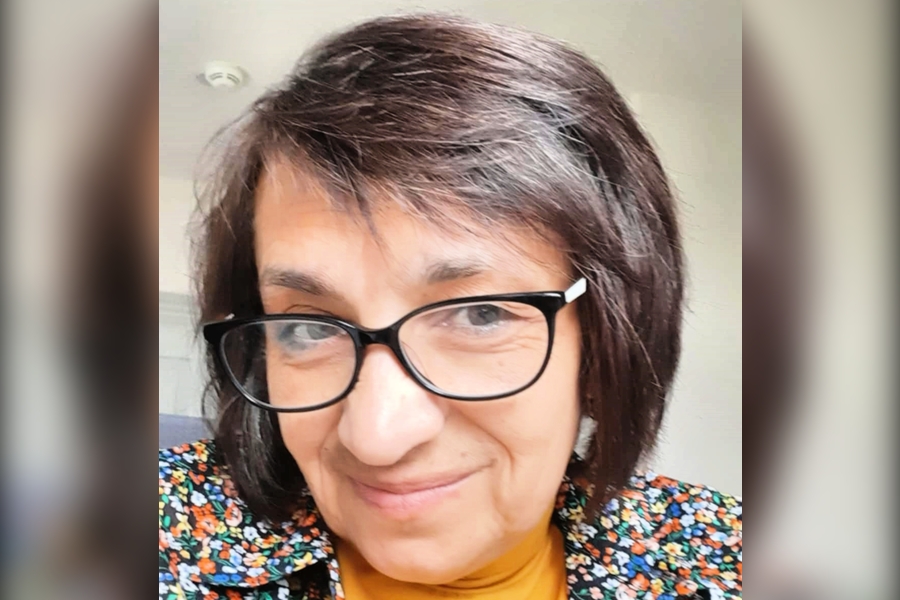
Tetiana Hoshko
Tetiana Hoshko is a professor in the History Department at the Ukrainian Catholic University in Lviv, specializing in the history of early modern towns in East-Central Europe (see https://orcid.org/0000-0003-1791-4346). She earned her Doctor of Historical Sciences degree from Taras Shevchenko National University of Kyiv in 2019. She was awarded fellowships from the Institute for Human Sciences in Vienna (2023), Imre Kertész Kolleg Jena (2023), University of Münster (2022-2023), German Historical Institute in Warsaw (2021-2022), Canadian Institute of Ukrainian Studies at the University of Alberta (2008-2009, 2013, and 2020), Polish National Commission for UNESCO (2011), Ukrainian Research Institute at Harvard University (2005), etc. Additionally, she served as a consultant for the research project The Jagiellonians: Dynasty, Memory, Identity (Oxford University, 2015).
KIU - Research project "The Women’s View of the Everyday Life of Ukrainian Emigrant Scholars after the Second World War" delves into the lives of Ukrainian refugee scholars through the letters of historian Natalia Polonska-Vasylenko and Ielyzaveta Sosnova, wife of economist Tymofii Sosnovy. While male scholars’ letters detail their professional and political struggles, the women’s correspondence provides a nuanced view of daily life, cultural challenges, and family matters. By examining these letters, the project offers insights into the conditions under which Ukrainian scholarship was rebuilt in exile.
Research interests:
- History of early modern towns and town law
- Women’s history
- Ukrainian historiography
Tetiana Kalenychenko
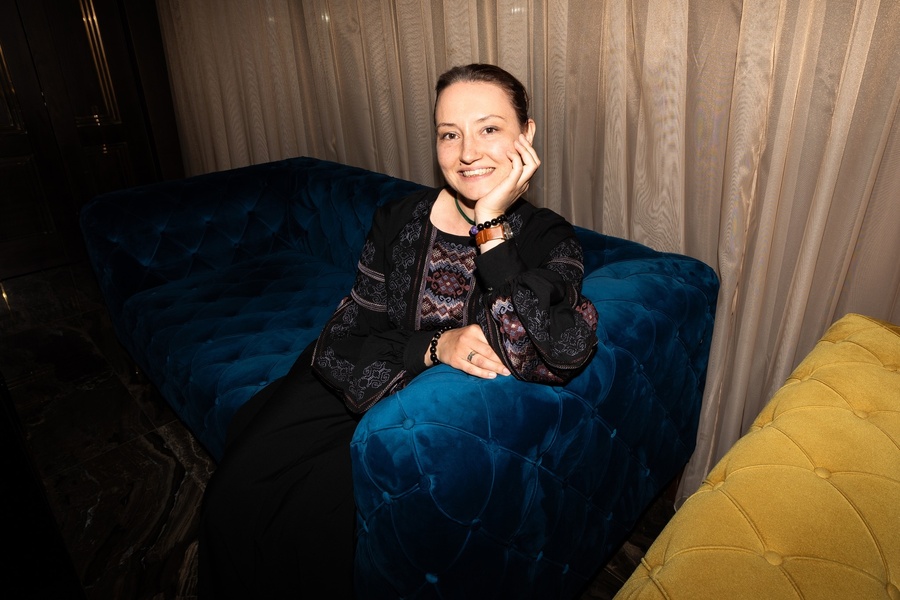
Tetiana Kalenychenko
Tetiana Kalenychenko is BA in Sociology, MA in Religious studies and PhD in Sociology of Religion (2018, Kyiv). She combines academic work in the areas of Peacebuilding, Conflict studies and Anthropology and Sociology of Religion with practical work as dialogue facilitator, mediator, project coordinator and trainer in restorative practices as the head of NGO “Dialogue in Action” (Kyiv). Her specialization is in linking and providing dialogue and cooperation possibilities for religious/faith-based communities and organizations between themselves and with secular ones. Additional field of her expertise is in conflict-sensitive analysis that helps to make field initiatives of help more productive and make less harm for the environment and society.
KIU-Research project ‘Exploring possibilities to frame a peacebuilding in times of war’ tries to understand and to find appropriate theoretical and methodological framework for a conflict analysis on the case of full-scale invasion in Ukraine from 2022 and its hybrid format from 2014. This frame is needed for both human rights advocacy and practical peacebuilding interventions with a special focus on postwar recovery.
Research interest:
- Framing the concept of peace in an active phase of war in Ukraine
- Adapting conflict-sensitive analysis to a critical reality in different war contexts
- Looking for a special place of religious and faith-based actors as both dividers and connectors in case of conflict
- Focus on qualitative methodology and mixed methods of analysis
Nataliia Kotenko (Vusatiuk)
Natalia Kotenko (Vusatiuk)
Nataliia Kotenko (Vusatiuk) is a junior researcher at the Department of Manuscripts and Textual Studies of the Taras Shevchenko Institute of Literature of the National Academy of Sciences of Ukraine. She is a Ph.D. Candidate in Philology at the Department of literature of the National University of Kyiv-Mohyla Academy in Ukraine. Her doctoral project is entitled The Literary Critical Discourse of the Kyiv Neoclassicists.
She has published articles and book chapters on the history of the Ukrainian modernism and literary criticism of the 1920–1930s. She was a scholarship holder of the Deutsches Kulturforum östliches Europa (2022) and a fellow of the New Europe College in Bucharest (2023–2024). Together with Andrii Portnov she edited a German-Ukrainian edition of Oswald Burghardt`s anthology ‘Dichtung der Verdammten’ (Arco-Verlag, 2025).
KIU-Research project "The Experience of War in the Ego-Documents and Poetry by Oswald Burghardt and Maksym Rylskyi" reconstructs the period of 1939–1945 in biographies of the renowned Ukrainian writers, critics and translators Oswald Burghardt and Maksym Rylskyi and explores their views on the Second World War. It reveals how the anti-militarist discourse in the poetry of two authors differs depending on the cultural milieu to which each of them belonged – the official Soviet or the emigrant national one.
Research interests:
- Ukrainian literary modernism
- History of literary criticism
- German-Ukrainian cultural relations
Inha Kozlova
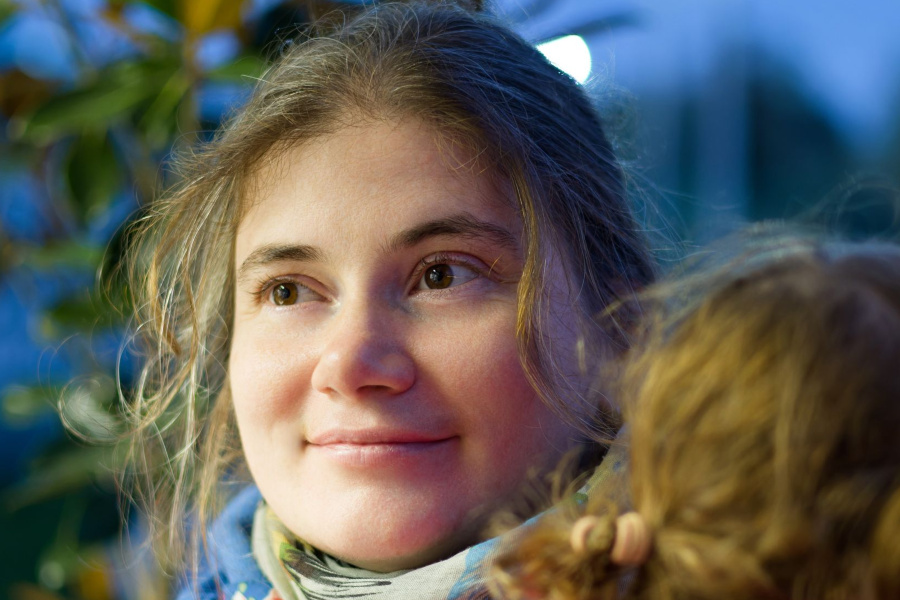
Inha Kozlova
Inha Kozlova is Associate Professor at the Sociology Department, Faculty of the Social Sciences at Ukrainian Catholic University, Lviv. She received her PhD in Sociology from the National Academiy of Sciences of Ukraine. Being a specialist in sociological project management and data collection, she is head of the Sociological Laboartory at the Ukrainian Catholic University since 2016. Inha conducted several empirical projects, for example in Poland and the US. She also worked with the Cultural Strategy Institute, the Ukrainian Center for Holocaust Studies, and the Center for Eastern European and International Studies (ZoiS). From February 2023 till June 2024 was a remote fellow in MOSPUS research group.
KIU-Research project “Work after Frontline: Veterans Coming Back Home” analyses social challenges of the war and the coexistence of different experiences of war. Returning to a peaceful life requires additional flexibility and sensitivity in state policies and everyday social interactions. Using qualitative sociology tools, the project will focus on one dimension of post-combat integration, namely the labor market adjustments. Based on 15 in-depth interviews with veterans (all genders), their requests for how they see their professional futures and how the government, private businesses, NGOs, or themselves can solve labor-related problems while returning home can be determined. Another set of interviews will with representatives of post-war reconstruction initiatives focuses on how they see the adaptation of the job market to the veteran’s needs. This project will contribute to understanding how to build relationships in local communities that will become a common living space for people with different war experiences.
Research interests:
- Urban sociology
- Sociology of the city
- Qualitative methods of data collection and analysis
- Migration studies (IDP)
- Veteran studies
Pavlo Martyshev
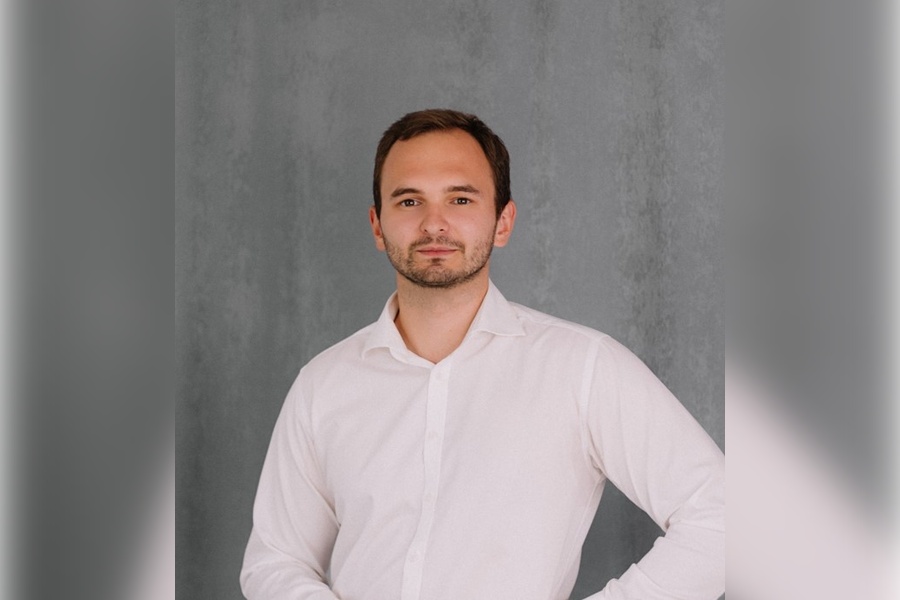
Pavlo Martyshev
Pavlo Martyshev is a researcher in The Center for Food and Land Use Research at Kyiv School of Economics. Pavlo specializes in applied research of food markets and agricultural policy, modeling of agricultural prices. He received a PhD degree in economics at the Institute of Economics and Forecasting of the National Academy of Sciences of Ukraine in 2020. Apart from his research activity, Pavlo worked as a grain market analyst at agricultural consulting companies. Pavlo participated in policy projects organized by the World Bank, UN World Food Programme, and other international institutions. Besides, he was engaged in the academic exchange with Leibniz Institute of Agricultural Development in Central and Eastern Europe (Germany) and the University of Massachusetts Amherst.
KIU-Research project "The effect of Ukrainian grain corridors on food security in the selected countries of east, central, and north regions of Africa" is aimed to estimate the impact of Ukrainian grain corridors on African food security. In particular, the effect of commercial grain exports and humanitarian program «Grain from Ukraine» will be analyzed and compared. The results of the study are important for the relevant government institutions, which are responsible for shaping humanitarian food programs in Ukraine and worldwide.
Research interests:
- Agricultural economics
- Food security
- Agri-food policy
- Econometric modelling of commodity markets
Maksym Obrizan
Maksym Obrizan
Maksym Obrizan is an Associate Professor at Kyiv School of Economics (KSE) in Ukraine, which he joined in 2010 after earning his PhD in Economics from the University of Iowa (USA). He has published 24 SCOPUS-indexed papers with over 700 citations and an h-index of 10, focusing on transition economics, applied health economics, and macroeconomics. His work appeared in Journal of Comparative Economics, World Development, WHO Bulletin, and others. Maksym is an editor of RePEc series New Economic Papers in Transition Economics and frequently reviews for international journals. With 20 years of teaching experience across the USA, Ukraine, Georgia, and Germany, he has twice won KSE Best Professor Award. He has consulted for the World Bank, USAID, EBRD, and recently served as a Secretariat Researcher at the WHO Council on the Economics of Health for All.
KIU - Research project "Violence and political preferences in Ukraine during the full-scale war" is a collaborative project together with Dr. Theocharis N. Grigoriadis from Freie Universität Berlin to study how war-related violence affects political preferences in Ukraine. The project will collect new data from 2,000 Ukrainians through the Omnibus survey conducted by Kyiv International Institute of Sociology (KIIS). It will examine how different types of war victimization impact voting patterns, political engagement, and attitudes toward negotiations with the aggressor. The findings will be presented at a conference and published as both blog and academic articles.
Research interests:
- Transition and comparative economics
- Applied health economics
- Macroeconomics
Albert Venher
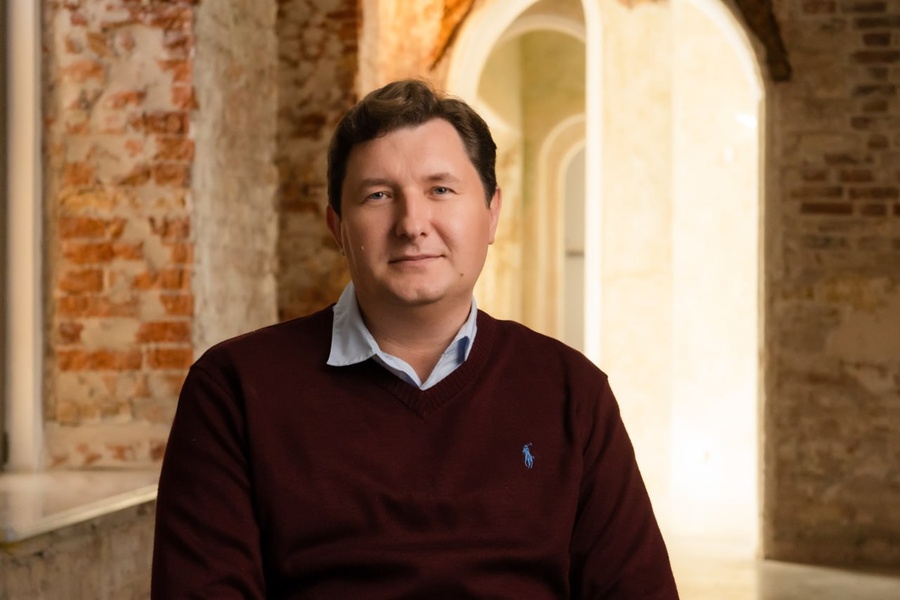
Albert Venher
Albert Venher is Chair of World History at the Historical Department of the Oles Honchar Dnipro National University. He received a PhD in history in 2012 with a thesis on the “Policy of Cultural Incorporation in Eastern Voivodeships of the Second Rzeczpospolita in 1918-1926”. From 2008 to 201, he was a postgraduate student at the Department of World History at Dnipro National University. Since 2023 he has been the Head of the Department of World History.
KIU - Research project ‘Homes for the disabled people in Ukraine during the German occupation, 1941–1943: dependents and employees – victims and executioners’ aims at determining, on the basis of archival and criminal cases against the employees of homes for the disabled in Dnipropetrovsk, Zaporizhia, and Chernihiv regions, the degree of integration of the employees in crimes against people with disabilities. It will trace the strategies of behavior of the employees in the conditions of the humanitarian crisis and determine individual strategies from complicity to removal and rescue.
Research interests:
- Intellectual history
- Oral history
- History of the Second World War
- History of national minorities in Ukraine